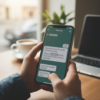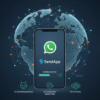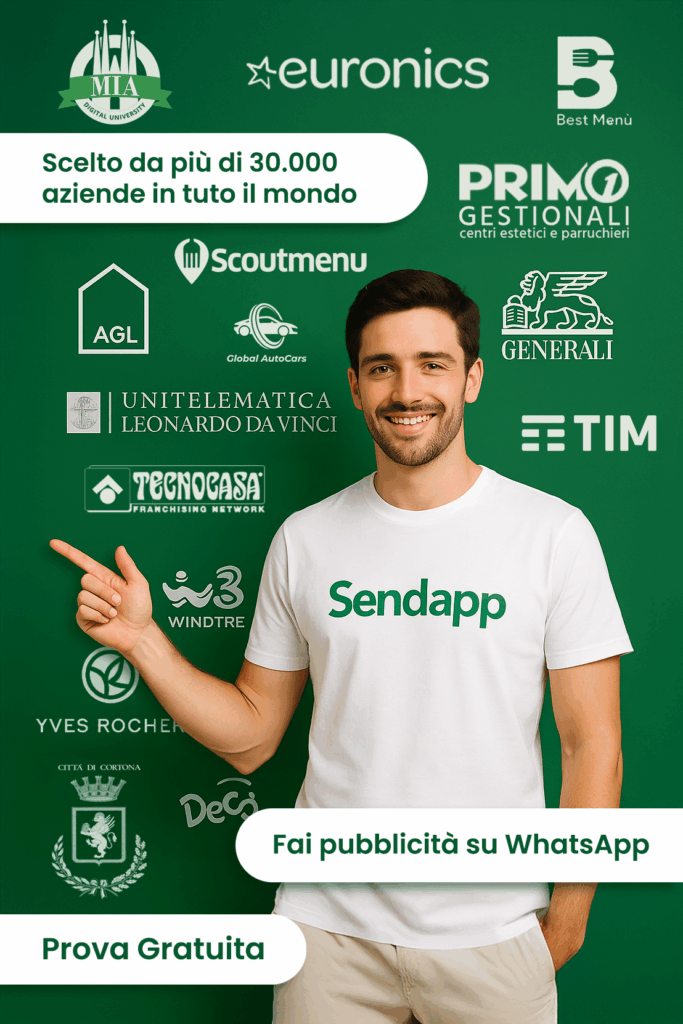Introduction to Advertising on WhatsApp
WhatsApp has become an essential communication tool, with over two billion active users worldwide. This platform offers unique opportunities for businesses looking to reach customers directly and in a personalized way. Advertising on WhatsApp not only allows you to engage with your audience in real time, but also build stronger, longer-lasting relationships.
One of WhatsApp's key advantages is its ability to offer an intimate and personal user experience. Businesses can send direct messages, images, videos, and even documents, making communication more dynamic and engaging. This direct approach is ideal for advertising campaigns aimed at building trust with customers.
Campaigns on WhatsApp require a well-defined strategy. It's essential to know your audience and understand which types of messages are most effective. Unlike other advertising platforms, WhatsApp doesn't allow standard sponsored ads; however, businesses can use broadcast messages and groups to reach a wider audience.
WhatsApp Business is a powerful tool that offers specific features for businesses. With it, businesses can automate responses, organize contacts, and analyze customer interactions. This makes it easier to manage advertising campaigns and improve the effectiveness of communications.
To start advertising on WhatsApp, it's essential to create a comprehensive business profile. A well-curated profile builds credibility and helps you establish an immediate connection with customers. Be sure to include detailed business information, such as opening hours, address, and contact information.
Finally, clear and authentic communication is essential. Companies must maintain a friendly and professional tone, avoiding intrusive or overly promotional messages. The goal is to create an open and genuine dialogue that can lead to lasting relationships with customers.
Effective Strategies for WhatsApp Ads
One of the most effective strategies for advertising on WhatsApp is using broadcast messages. This feature allows you to send a message to multiple contacts at once, without creating a group. It's a great way to announce promotions, launch new products, or simply keep customers updated.
Creating topical groups is another powerful strategy. WhatsApp groups can become active communities where customers share experiences and feedback. Businesses can moderate these discussions, offering support and answering questions promptly.
WhatsApp campaigns can be enriched with multimedia content. Sending images, videos, or GIFs can increase engagement and make messages more memorable. For example, a product demo video can explain its features more effectively than simple text.
Autoreplies are an indispensable tool for businesses that receive a large number of messages daily. Automating replies helps save time and ensures customers receive an immediate response. However, it's important to maintain a personal tone even in automated messages.
Another strategy is to use personalized invitation links. These links can be shared on other social media platforms or on the company's website, inviting users to join a WhatsApp group or start a private conversation. This method helps expand your reach and attract new customers.
Finally, collaborating with influencers or brand ambassadors can amplify the reach of WhatsApp campaigns. Influencers can help promote products or services within groups or through direct messages, making advertising more credible and engaging.
Creating Engaging Content for WhatsApp
Creating engaging content is crucial to the success of WhatsApp advertising campaigns. Content must be relevant and interesting to your target audience. A good starting point is to understand your customers' needs and interests and create content that meets those expectations.
Telling a story is a powerful way to connect with your audience. Businesses can use WhatsApp to share stories of satisfied customers, case studies, or behind-the-scenes insights into their work. This not only humanizes the brand but also helps build an emotional connection with customers.
Using interactive content can increase engagement. Surveys, quizzes, or simple questions can encourage active user participation. For example, a fashion brand could ask customers to vote for their favorite outfit, creating a dynamic and engaging conversation.
Personalization of messages is crucial. Addressing customers by name and referencing previous interactions makes messages more personal and relevant. This approach increases the likelihood that customers will respond and engage with the content.
It's important to keep messages clear and concise. WhatsApp users appreciate direct and fast communication. Avoid long texts and focus on the essentials. Use short paragraphs, bullet points, and images to make the message easy to digest.
Finally, launching seasonal or themed campaigns can spark interest. Special promotions tied to holidays or specific events can create a sense of urgency and encourage customers to take action. Make sure your content reflects the theme and use visuals to emphasize it.
Measuring the Success of WhatsApp Campaigns
Measuring the success of your WhatsApp campaigns is essential for optimizing future strategies. One of the key metrics to monitor is message open rates. Knowing how many users read your messages helps you understand the effectiveness of your approach and make adjustments if necessary.
Engagement is another key indicator. The number of replies, comments, or interactions you receive can provide valuable insights into how engaging your content is to your customers. A high level of engagement suggests your messages are resonating with your audience.
Conversion tracking is crucial for evaluating the ROI of WhatsApp campaigns. It identifies how many users take a desired action, such as purchasing a product or registering for an event, after receiving a message. This helps determine the effectiveness of your marketing campaigns.
Companies should also track qualitative metrics, such as customer feedback. Responses and comments can provide valuable insights into what customers like and dislike. Use this information to continuously improve your communications strategy.
Analyzing response time can help improve the customer experience. A fast response time is often associated with a high level of customer satisfaction. Companies should aim to respond quickly and efficiently to maintain a high level of service.
Finally, using advanced analytics tools can make it easier to monitor campaign performance. SendApp, for example, offers solutions for analyzing key metrics and improving communication strategies on WhatsApp. For more information on how SendApp can optimize your WhatsApp management, visit SendApp.
Conclusion
WhatsApp offers a unique opportunity for businesses to connect with customers in a personal and direct way. By using effective strategies, creating engaging content, and carefully measuring results, businesses can maximize the advertising potential of this platform.
SendApp is a valuable tool for businesses and professionals looking to manage their WhatsApp business more efficiently. With advanced automation, analytics, and contact management features, SendApp can transform the way you interact with your customers. Learn more about how it can support your business by visiting SendApp.







